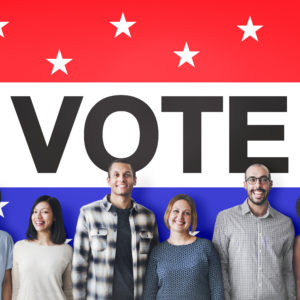Millions of members of Generation Z have cast their first ballots in a presidential election. I applaud them for participating in our electoral system, but I wonder how many of them feel that their voices were heard when it came to their presidential vote.
After all, our youngest American voters have spent at least half of their lives with a president who didn’t originally win the popular vote.
In these new voters’ first presidential general election, did presidential candidates visit their state? Did the campaigns spend any money in their state? Was their state considered a “must win” by either candidate?
Or are they among the four in five Americans who live in a state where who would get the most votes for president in that state was an outcome we all knew before the general election even began?
I think they’ve noticed that America is talking about how states voted, rather than how the people voted.
Gen Z isn’t the only cohort I’m worried about feeling disaffected. Millennials have spent nearly a third of their lives under a president who first ascended to office without winning the popular vote.
The oldest millennials, born in 1981, cast their first ballots in a presidential race in 2000 and saw George W. Bush win the presidency despite losing the popular vote by more than 540,000 votes.
The youngest millennials, born in 1996, cast their first ballots in a presidential race in 2016 and saw Donald Trump win the presidency despite Hillary Clinton winning the popular vote by 2.8 million votes.
Two entire generations of Americans have been reminded repeatedly throughout their lives that their votes for president don’t matter nearly as much as what state they cast their ballot in.
Millennials and Gen Z together made up the largest bloc of eligible voters in this election. Yet can we really expect them all to feel that their votes mattered equally?
It’s been made quite clear to them that every vote is not equal for the presidential election.
For the most important office in our country, their vote is either hyper-relevant or, more likely, completely irrelevant because they happen to live in one of the 35 “flyover” states.
How can we expect them all to be motivated to cast a ballot when for so much of their lives the way we elect the president has resulted in the candidate who got fewer votes winning the race?
Five of our 45 presidents came into office despite getting fewer votes nationwide, and this has happened twice in just the past two decades.
Yet, here we are again, watching as lawyers swarm to small districts in a few states under contention to parse through each and every ballot, ignoring the nationwide popular vote.
America deserves more than the uncertainty, chaos, and inequity that our current electoral system provides.
There is good news. We can make sure that 2020 is the last time this inequitable process decides the presidency by demanding that state legislators support the National Popular Vote Interstate Compact bill.
The National Popular Vote guarantees the White House to the candidate who receives the most votes in all 50 states and the District of Columbia.
Fifteen states plus D.C. have signed the National Popular Vote into law, and after states with just 74 more electoral votes sign on, the national popular vote winner will be the electoral college winner, every time.
The only way to have a national popular vote in place for the 2024 presidential election is to implement the National Popular Vote Interstate Compact.
Join our movement and email your state legislators in support of the National Popular Vote bill today at www.NationalPopularVote.com/Write.
By doing so, you will help ensure that future generations of voters feel that their votes are valued and matter.

